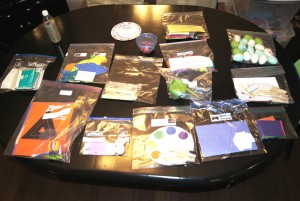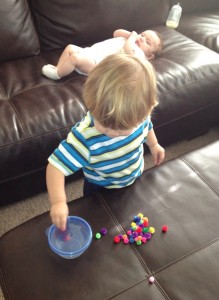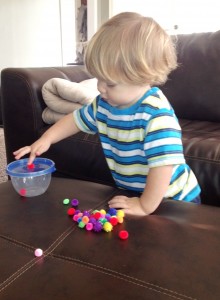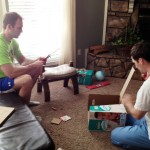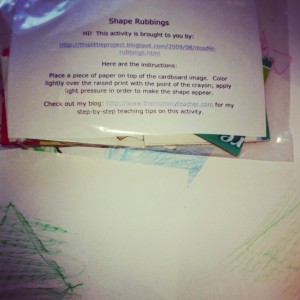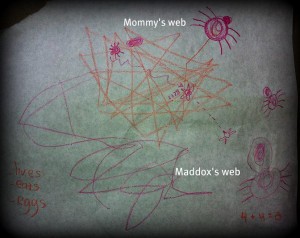I started adding step-by-step teaching tips for some of my recent Busy Bag activities that Sean Patrick is experimenting with but this is taking me some time for a few reasons:
1) I like to introduce one activity every few days and really spend time maximizing the teaching opportunties from that “game” as Sean Patrick calls them.
2) I am a mommy teacher so I don’t spend much time on the computer – this blog is my hobby and I try to carve out more time in my day actually spending time working with and playing with my little ones 🙂
3) I like to spend time adding teaching tips for older children as well because I believe that EVERY activity can be and should be accommodated to each individual child.
So….at that….here is another activity….and one just in time to make use of all those Easter Eggs floating around your house 🙂
Egg Counting (The Link attached has other GREAT ideas, but try not to take them at face value….make a little step by step teaching plan for each activity because a “lesson plan” can structure the pace and aid the learning process)
This activity has MULTIPLE uses… to teach counting one to one and to teach addition in the most organic way by teaching about all the ways to get to a number (1 + 1 + 1 + 1= 4 ; 2 + 2 = 4 ; 4 + 0 = 4)
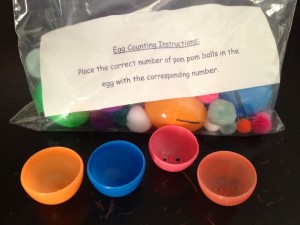
I suggest that you work on counting to, or adding to, ONE number at a time.
1) Start with the smaller side of the eggs on their backs….if you are working on the number four then place four egg halves on their backs.
2) “Let’s use the Easter Eggs to see all the different ways we can count to four!” or for older kids “Let’s……ways we can add to the sum of four”
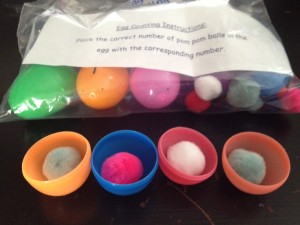 3) Place one pom pom in each egg (I switched to the small pom poms after the first try because I wanted all of them to be able to fit in one egg half when attempted) One and one and one and one is four! (four younger kids you can use “and” in place of “plus” and “is” in place of “equals” just for now while they are being introduced to adding.
3) Place one pom pom in each egg (I switched to the small pom poms after the first try because I wanted all of them to be able to fit in one egg half when attempted) One and one and one and one is four! (four younger kids you can use “and” in place of “plus” and “is” in place of “equals” just for now while they are being introduced to adding.
3) Dump them out and say – let’s see if there is another way to fill the eggs to count to four …One, two and one and one is four so two and two more is four.
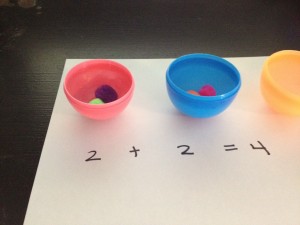 4) Continue this until you have exhausted every means of arriving at the sum of four. For older children model and demonstrate how to write out each problem.
4) Continue this until you have exhausted every means of arriving at the sum of four. For older children model and demonstrate how to write out each problem.
5) Pick a number close in proximity to the number you worked on (like 5) and do it again….together this time.
6) Pick a number easier than the original number (like 3) and allow your little one to try on their own as you watch and make encouraging comments.

